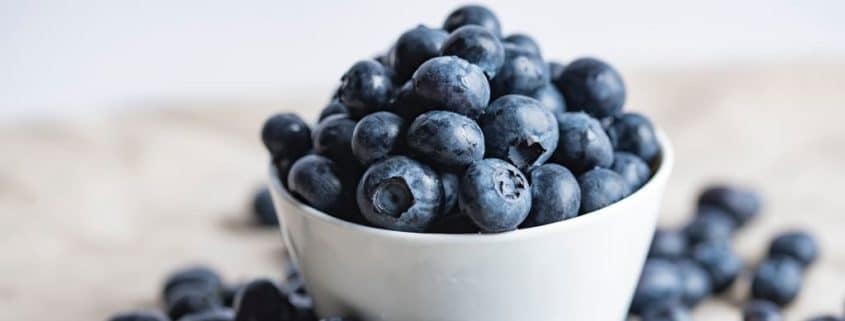Do you find yourself scrolling through endless pages of conflicting advice on a fertility diet? Do you feel like after all that googling you haven’t found the answer?
Is dairy good or bad for fertility? Pineapples? Gluten? Go vegan? What about the Keto diet?
Picture this. Emma (it’s just a random name to help me illustrate the story) is trying to conceive. She read online that eating pineapple in a luteal phase helps with implantation. Emma was eating pineapples for the last three months. Now she fell pregnant. Emma writes a blog post, post on Facebook, Instagram about how pineapple helped her fertility. Now you read her blog. It gives you hope. The next day you are heading to the supermarket for some pineapples.
Yes, pineapples are loaded with an enzyme called bromelain. Bromelain is nature’s inflammatory blood thinner. It may have made a difference for Emma. But we don’t know for sure. We don’t know what was her health history prior to the pineapple diet. Did she have any infertility-related diagnosis? How much pineapple did she eat? Was she on any fertility or IVF drugs? What was her diet like for the last 6-12 months?
If you eat only highly processed foods daily and will chuck some pineapple with it, is it really going to make a difference? In fact, we could not find any research exploring if pineapple (bromelain) can improve your chances to get pregnant. It may have worked for someone. But when it gets shared online it may sound like it helps everybody.
The best fertility diet strategy
As far as we know there is no single wonder food that will get you pregnant. Nutrition from a variety of foods is a better strategy for optimal fertility fitness.
A well-balanced diet is a good start. Of course, you may modify it to fit your health needs. Different women will need different foods.
If you have a diagnosis of PCOS, endometriosis, low ovarian reserve you will need to cater for your specific condition. PCOS patients with insulin resistance may reap the benefits of a low GI diet or a low carb diet. Iron-deficient women will need foods rich in iron and, possibly, supplements.
If you are looking for a good base diet for fertility I’d recommend investigating the Mediterranean way of eating. It has been standing out for the last decade or so. The latest study published in Human Reproduction in 2018 reported that women who ate the most Mediterranean diets were around 66 per cent more likely to have a baby after the first round of IVF.
Women observed in the study were non-obese – BMI less than 30. Being a healthy weight will improve your fertility. Both being underweight and overweight can interfere with your menstrual cycles and may increase the risk of miscarriage.
Study authors explained that a healthy diet is just as important for men as it is for women. “Previous work from our research group among the male partners of our study has suggested that adherence to the Mediterranean diet may also help improve semen quality,” says the lead author.
Again this makes sense, as researchers previously observed a connection between male cardiovascular health and fertility. Mediterranean diet improves heart health, general wellbeing, and voila – your man has better sperm.
Mediterranean diet is a well-balanced way of eating. It’s not an artificially created diet. For centuries people have been eating like this in the Mediterranean region. It contains a high amount of vegetables, fruits, olive oil, beans and wholemeal grains. As well as moderate amounts of oily fish, dairy products, and only a small amount of red meat and chicken. Mediterranean diet has a low glycemic index.
If you are experimenting with so-called fertility superfoods, keep in mind that they are more likely to make a difference when you enjoy them as a part of a healthy balanced diet. And for the majority of couples, the Mediterranean way of eating seems like a good place to start.
Read the study abstract below:
Adherence to the Mediterranean diet and IVF success rate among non-obese women attempting fertility
Dimitrios Karayiannis, Meropi D Kontogianni, Christina Mendorou, Minas Mastrominas, Nikos Yiannakouris;
Human Reproduction, Volume 33, Issue 3, 1 March 2018, Pages 494–502, https://doi.org/10.1093/humrep/dey003
Abstract
STUDY QUESTION
Is adherence to the Mediterranean diet (MedDiet) associated with better IVF performance in women attempting fertility?
SUMMARY ANSWER
Greater adherence to the MedDiet, defined using the validated Mediterranean diet score (MedDietScore), was associated with a higher likelihood of achieving clinical pregnancy and live birth among non-obese women <35 years of age.
WHAT IS KNOWN ALREADY
Diet impacts fertility and certain nutrients and food groups appear to have a greater effect on reproductive health, but there are relatively few published data on the role of dietary patterns, and the MedDiet in particular, on assisted reproductive performance.
STUDY DESIGN, SIZE, DURATION
This prospective cohort study included 244 non-obese women (22–41 years of age; BMI < 30 kg/m2) who underwent a first IVF treatment in an Assisted Conception Unit in Athens, Greece, between November 2013 and September 2016. The study was designed to evaluate the influence of habitual dietary intake and lifestyle on fertility outcomes.
PARTICIPANTS/MATERIALS, SETTING, METHODS
Diet was assessed before the IVF treatment via a validated food-frequency questionnaire. Adherence to the MedDiet was assessed through the MedDietScore (range: 0–55), with higher scores indicating greater adherence. Intermediate outcomes (oocyte yield, fertilization rate, and embryo quality measures) and clinical endpoints (implantation, clinical pregnancy and live birth) were abstracted from electronic medical records. Associations between MedDietScore and IVF outcomes were analysed using generalized linear models adjusting for age, ovarian stimulation protocol, BMI, physical activity, anxiety levels, infertility diagnosis, caloric intake and supplements use.
MAIN RESULTS AND THE ROLE OF CHANCE
No association of MedDietScore with any of the intermediate outcomes or with implantation was found. However, compared with women in the highest tertile of the MedDietScore (?36, n = 86), women in the lowest tertile (?30, n = 79) had significantly lower rates of clinical pregnancy (29.1 vs 50.0%, P = 0.01) and live birth (26.6 vs 48.8%, P = 0.01). The multivariable-adjusted relative risk (95% CI) for clinical pregnancy comparing women in the lowest with women in the highest tertile of the MedDietScore was 0.35 (0.16–0.78; P-trend=0.01), and for live birth it was 0.32 (0.14–0.71; P-trend = 0.01). These associations were significantly modified by women’s age (P-interaction <0.01 for both outcomes). MedDietScore was positively related to clinical pregnancy and live birth among women <35 years old (P ? 0.01) but not among women ?35 years. Among women <35 years, a beneficial 5-point increase in the MedDietScore was associated with ~2.7 times higher likelihood of achieving clinical pregnancy and live birth.
LIMITATIONS, REASONS FOR CAUTION
Our finding cannot be generalized to the whole reproductive population nor to obese women nor to women attending infertility clinics around the world. In addition, due to the observational study design, causal inference is limited.
WIDER IMPLICATIONS OF THE FINDINGS
The results suggest that diet modifications and greater compliance to the Mediterranean diet may help increase the chances of a successful pregnancy and delivering a live baby for women undergoing IVF treatment.
STUDY FUNDING/COMPETING INTEREST(S)
This work was partially supported by a grand from Harokopio University (KE321). All authors declare no conflicts of interest.
TRIAL REGISTRATION NUMBER
NCT03050944.
https://academic.oup.com/humrep/article-abstract/33/3/494/4828066?redirectedFrom=fulltext



